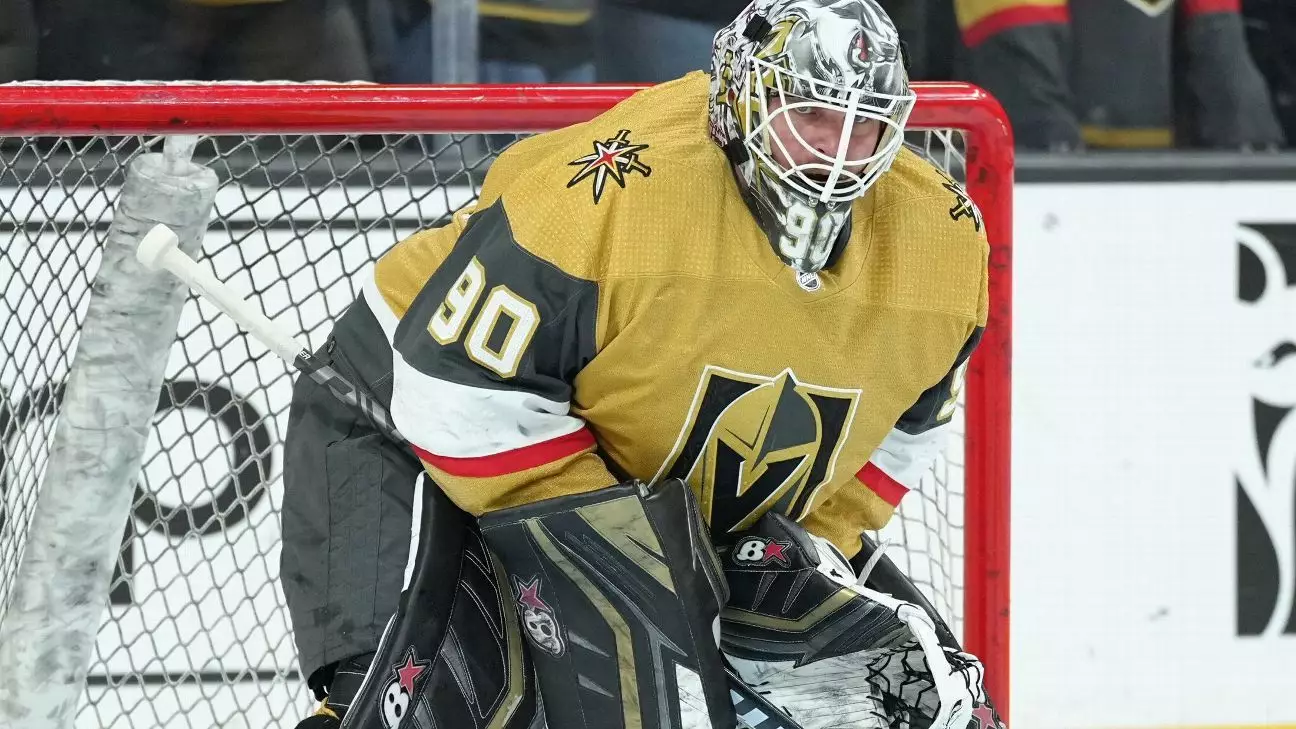In the often tumultuous world of professional ice hockey, few stories evoke as much intrigue as that of goaltender Robin Lehner. Currently associated with the Vegas Golden Knights, Lehner’s situation underlines the complexities athletes face when battling both physical ailments and external perceptions. Recently, he expressed optimism about his future in the NHL amidst persistent speculation about his career trajectory that seems to hang in the balance.
In August 2022, Lehner underwent hip surgery, a procedure that has inadvertently cast a long shadow over his professional prospects. Since his surgery, he has been placed on long-term injured reserve (LTIR), which allows the organization to manage salary cap ramifications while ensuring Lehner receives his financial dues. However, the lack of clarity from the team concerning his status raises several questions. Lehner himself noted, “Everyone knows why I couldn’t be there,” hinting at the emotional and physical toll his injury has taken, as well as the challenges regarding his rehabilitation and readiness to compete once again.
Contractual Complications
Lehner’s contractual situation adds another layer of complexity. As he navigates the final year of his contract, which guarantees him a salary of $4.4 million, there looms the potential risk of contract termination. The Golden Knights’ general manager, Kelly McCrimmon, confirmed that Lehner remains “unfit to play,” and emphasized the unique complications that this case presents for both the NHL and the NHL Players Association. This situation creates a precarious balancing act for the franchise: they must ensure compliance with salary cap regulations while also addressing the wellbeing of a player whose performance, should he return to form, could be invaluable in a competitive landscape.
The ramifications of Lehner’s status stretch beyond individual concerns. His unavailability complicates the Golden Knights’ roster decisions and salary cap strategies. A cap hit of $5 million is non-trivial, and should Lehner be unable to return, his potential exit from the team would create further financial flexibility for the organization. The complexities of contractual negotiations and physical health concurrently dictate the franchise’s planning for both short-term success and long-term development.
Lehner’s optimism reflects a broader narrative of resilience characteristic of professional athletes. His hope for a “resolution” hints at both his desire to reclaim his spot on the team and the inherent frustrations faced when sidelined by injuries. The collaboration between the NHL, the NHLPA, and the Golden Knights may be crucial in resurfacing him in the league, but it also underscores a personal journey marked by uncertainty and a desire to return to the ice. As fans and analysts alike speculate about what lies ahead, the focus remains on the athlete’s health and the potential for a re-emergence that could reignite his career and inspire others facing similar adversities.
Robin Lehner’s situation serves as a poignant reminder of the human element within professional sports, emphasizing the delicate balance between health, career, and contract obligations. As the situation develops, it will be fascinating to observe not only Lehner’s return to the ice but also the broader impacts on the Golden Knights as they adapt to an ever-changing landscape.


Leave a Reply